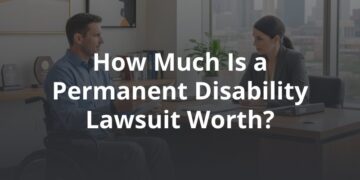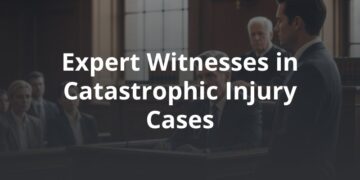When a loved one passes, it can be difficult to focus on much other than grief. It is important to take the time you need and seek resources and support from other people to help with the grieving process.
You may feel a little overwhelmed with all that needs to be done. Planning a funeral and a memorial service may seem daunting, let alone making sure the decedent’s wishes for their assets and property are honored. If you are dealing with the recent passing of a loved one, consult this legal checklist for assistance in managing the probate process, choosing a trusts and estates attorney, and more.
Contact Family and Friends. Depending on the specific situation, you may be in a position where you need to let the person’s loved ones know about their passing. All families are different and handle loss in different ways. However, in general, family members should know very soon after the person has passed. Employers, schools, social groups, and clergy members may also need to be notified. It is important that people who knew the decedent are notified personally and do not learn about their passing in a secondhand manner.
Obtain Legal Documentation of Death. Documentation is essential when a person passes away. These documents are often issued by the hospital or medical care facility personnel. About 10 copies of the death certificate should be obtained from the mortuary or funeral home, as financial institutions and insurance companies may require copies.
Locate the Last Will and Testament. Many people create wills with the assistance of will and trust attorneys to ensure their assets are distributed according to their wishes. End-of-life arrangements and advance directives are often also prepared.
If unknown, determine the location of these documents by communicating with close family members or the decedent’s attorney. If no wishes have been documented, consult with the closest family members regarding arrangements.
Choose a Funeral Provider and Cemetery. Do some research and choose a funeral service that can help walk you through the process of memorializing your loved one. A respectful ceremony that takes into account the person’s cultural and/or religious values will make the grieving process and legal measures easier for the family.
Identify the Executor of the Will. If a will exists, the executor must obtain a letter of testamentary from a probate court. This letter gives the executor the authority to settle the business of the decedent. If there is no will, a spouse, a partner, or another family member can obtain a letter of administration.
Find Important Documents. Locate the following important documents as soon as possible:
- Bank records
- Retirement account documents
- Debt records
- Life, health, homeowners, auto, and other insurance policies
- Marriage and birth certificates
- Vehicle titles
- Credit reports
- Lease agreements
- Military records
- Safe-deposit rental agreement
- Recent tax returns
- Unpaid bills
Meet with a Trusts and Estates Attorney and a CPA. Working with an attorney can help the process of settling an estate much easier. If the estate is worth more than $50,000, estates can become very complicated. A CPA can also be helpful in dealing with financial issues that can arise, like final tax returns that must be filed on the decedent’s behalf.
Take the Will to Probate. Probate is the legal execution of a will. In probate court, debts and liabilities are managed and paid, and the remaining assets are distributed to beneficiaries. This is not always necessary, especially for smaller estates that do not involve lots of people and valuable assets. Probate can sometimes be stressful, so working with an attorney is essential to making sure the executor completes all legal obligations and the person’s will is honored.
Evaluate the Assets. All assets belonging to the decedent must be identified and valued. This process is called marshaling of assets, and it can be a difficult job. You will want to carefully comb through documents and records and appraise the person’s personal belongings to ensure everything is accounted for. The executor and other family members will often participate in this process. If the person had a safe deposit box, you will need to locate the key or speak with the financial institution to gain access.
Make Notifications. When a person dies, the IRS must be informed, and a tax ID number must be obtained for the estate. Since social security numbers lose effectiveness after death, a new number must be obtained from the IRS in order to authorize activities on behalf of the estate. The following institutions must also be formally notified:
- Banks and financial institutions
- Credit card companies
- Loan servicing agencies
- Insurance providers
- Financial advisers
Once these institutions have been notified, accounts in the deceased person’s name will need to be closed. You may need to present death certificates if you do not have passwords or other security information.
Any person identified in the will as a beneficiary will need to be notified. Be sure to let them know the name of the executor and ask for their patience in moving through the process, as it can sometimes take years to fully sort out and settle an estate. If a will cannot be located, intestacy laws will apply, and the local probate court will provide guidance.
File a Request to Forward Mail. Go to the local post office and arrange for mail addressed to the decedent to be forwarded to another address. Proper documentation will be necessary to show the legal capacity to act on behalf of the estate. This is critical for tracking down unpaid bills, accounts that need to be closed, and active subscriptions.
Open a New Bank Account. The remaining funds should be transferred to a new account titled in the name of the estate. The account can serve as the checking account used to pay outstanding bills or receive additional funds, such as unpaid wages or tax refunds.
Distribute Assets to Heirs and Beneficiaries. Once all claims have been settled and taxes have been paid, the executor can start to distribute the remaining assets. These should be distributed to the heirs named in the will by the decedent. The valuation must be completed on all assets before this time. In some situations, the executor will receive some compensation due to the amount of time and effort it takes to manage an estate.
Create the Final Report and Close the Estate. After assets have been properly allocated, final estate inventory reporting can be filed with the probate court. It is recommended that the executor keeps statements, forms, documents, and all other records of estate-related actions for at least 10 years in case issues arise later. Consult with your probate attorney regarding retaining the necessary documents.
Settling an estate when a loved one dies can be a stressful process. Putting their affairs in order and honoring their wishes in addition to grieving and planning a funeral can be a challenge, so the assistance of a trust and estate attorney can be crucial.
If someone close to you has passed recently and you anticipate needing legal assistance, reach out to a local attorney to discuss your case and determine whether the probate process will be necessary. A good attorney will support you through the process and make sure every detail is considered and your loved one’s wishes are properly honored and respected.
This blog post was written by our friends at Blackford & Florh, LLC., a full-service Maryland law firm.








